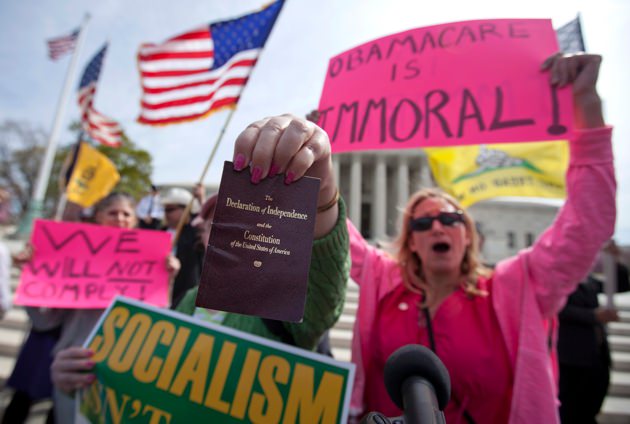A team of filmmakers planning a documentary on Jane Jacobs asked me recently about the original reviews of The Death and Life of Great American Cities. I was Jane’s lifelong editor and close friend and had just written an introduction for the 50th anniversary edition of her famous critique of city planners and their destruction of vital city neighborhoods. I told the filmmakers, whose film was planned for the anniversary, that writers like Jane are usually attacked by beneficiaries of entrenched institutions and that she was no exception. But I also said that I was pleasantly surprised by the positive response to Jane’s book from New York’s so-called Upper West Side intellectuals, most of whom had recently transferred their zeal from the Marxist left to the capitalist right; many had previously supported and hoped to strengthen the moderate social welfare state but were now fiercely opposed to it.
It was one of these New York intellectual friends, a proto neocon, who first suggested that I read Jane’s article in Fortune defending vital city neighborhoods from rapacious planners, the seedling that became Death and Life. Though I had never been a socialist and have my doubts about capitalism as a necessary evil I shared my friend’s enthusiasm for Jane’s critique. But I was puzzled when he went further by denouncing Washington’s plan at the time to fluoridate the water supply as an intrusion on one’s right to let one’s teeth rot. I wondered whether he was joking—surely he would not go so far in his flight from the left as to oppose protective chemicals in the drinking water, or would he?
I was reminded of my erstwhile friend’s anti-fluoridism last spring when I was scolded by a relic from those long ago days for indifference rather than zealous opposition to Mayor Bloomberg’s newly painted bike lanes as an infringement on motorists’ freedom to hug the curb. Could this extreme antinomianism—this triumph of militant faith over settled law and custom—have been central to neocon ideology from the beginning? Had the neocons misread The Death and Life of Great American Cities as a generalized assault on government as such rather than a critique of a particular case of government excess? Were the neocons the ideological parents of the Tea Party as my neocon friend’s attack on fluoride prefigured today’s self-destructive attack on Obama’s universal health care legislation?
Jane of course would have found such extremism absurd. One of her biographers accurately called her a genius of common sense. She belonged to no faction or party. Her mind was so finely made as T.S. Eliot said of Henry James, that no idea could violate it and none did. She was a skeptical empiricist from head to foot. She would have been disgusted by today’s right-wing Jacobinism which calls itself conservative.
My new right-wing friends in those early days danced the classic revolutionary two step. As they defended personal autonomy from an intrusive state they also pursued institutional power for themselves: funding from the CIA and right wing foundations, jobs from the Luce magazines, conservative think tanks, crackpot millionaires, invitations to Nixon’s White House: the well traveled revolutionary route from catacombs to Vatican, from barricades to Tuilleries and Kremlin. As for Jane, her only power base except for a brief tour at Luce’s Architectural Forum was her own writing.
I must have disheartened the filmmakers with this lengthy answer to their simple question but I had been thinking in this pre election season about the intensifying attack on Washington by the radical right. This tendency had been brewing since the sixties, when those who opposed Johnson’s civil rights legislation developed the Republican Party’s “southern strategy” to capture the voters of the old south. More troubling, according to the Southern Poverty Law Center, “The stunning growth (of the) anti-government Patriot movement…that sees the federal government as their primary enemy saw the numbers of their armed militia increase by 55 percent—from 824 in 2010 to 1274 last year.” This radicalism, which regards Washington as an alien intruder (except for its metastasizing military and homeland security operations), has many roots—some as old as the Articles of Confederation, the populist attacks on the National Bank and the Confederacy itself—that echo today in the vilification of the Federal Reserve and Grover Norquist’s anti-tax pledge to “shrink” the government so we can “drown it in the bathtub,” together with the Progressive achievements of the past hundred years. And then there’s Obama and his reviled health care mandate, which, for all the constitutional wrangling, is simply a tax by another name, paid as a premium to the insurance industry rather than directly to the treasury.
Advertisement
We have come a long way since my friend’s principled critique of fluoridation, but so has neoconservatism, whose irresponsible second generation leadership placed Sarah Palin a heartbeat away from a potential presidency while its critique of liberal government is now grotesquely magnified by the Republican Tea Party and its Super PACS, whose billionaires are the legatees of the crackpot millionaires who originally financed the neocons. Americans may at last be rid of their teeth, their bike paths, and perhaps, over time, their federal government (except for its security apparatus) as the Koch brothers, Charles and David, retrieve from Grover Norquist’s bathtub the remains of the federal system, hang them out to dry, and place them in their winner-take-all trophy room.



